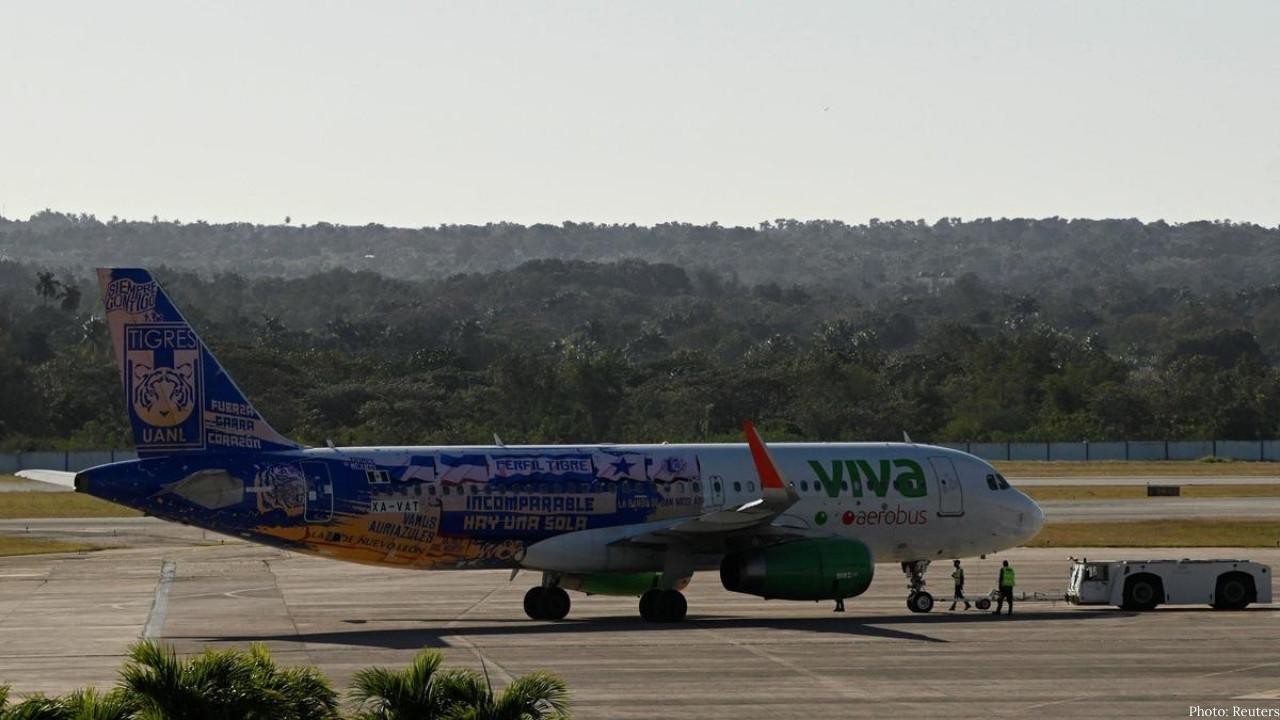You have not yet added any article to your bookmarks!

Join 10k+ people to get notified about new posts, news and tips.
Do not worry we don't spam!

Post by : Anis Farhan
In recent years, travel has evolved far beyond leisure or sightseeing. The modern traveler seeks meaning, rejuvenation, and personal transformation. As the world steps into 2025, two powerful trends are defining the global tourism landscape—wellness resorts and adventure travel.
While both appeal to very different kinds of wanderers, they share a common goal: to help people reconnect—with themselves, with nature, and with the world around them. The debate over which trend leads in popularity is more than just a preference; it reflects a cultural shift in how people define rest, excitement, and fulfillment in travel.
Wellness tourism saw a massive rise after the pandemic, when travelers began prioritizing physical health, mental well-being, and emotional balance. The desire to escape stress, screen fatigue, and urban chaos gave birth to an industry centered on serenity.
Wellness resorts, once niche, have become a mainstream segment of global tourism. From Bali and Thailand to Dubai and the Maldives, wellness retreats promise rejuvenation through yoga, spa therapies, meditation, detox diets, and mindfulness sessions. The idea is simple yet profound—to heal while traveling.
A wellness resort isn’t just a luxury hotel with a spa. It’s an immersive sanctuary designed to transform body and mind. These properties often offer:
Holistic health consultations.
Organic farm-to-table dining.
Digital detox zones.
Energy healing therapies.
Sound baths, hydrotherapy, and aromatherapy.
The modern wellness resort curates experiences that balance physical relaxation with inner renewal. Travelers don’t just leave refreshed—they often leave changed.
On the other side of the spectrum lies adventure travel, the ultimate escape for thrill-seekers. This trend caters to travelers who crave action and discovery—hiking volcanoes, diving in coral reefs, skydiving, or trekking across glaciers.
Adventure tourism is not just about testing physical limits; it’s about personal achievement and connection with raw, untouched nature. Every climb, dive, or journey challenges comfort zones and rewards participants with unparalleled fulfillment.
Adventure travel isn’t limited to extreme sports. It ranges from soft adventures like kayaking, mountain biking, and jungle safaris to more intense challenges such as mountaineering or desert expeditions.
The key attraction is authenticity—participants immerse themselves in real landscapes and cultures rather than curated luxury. For many, the sweat, dirt, and unpredictability make the experience more memorable and transformative.
The modern world is marked by burnout and overstimulation. Constant digital exposure and fast-paced living leave people mentally drained. Wellness travel offers an antidote—an intentional pause.
Travelers who choose wellness resorts are often seeking recovery rather than recreation. They value stillness, nature, and holistic practices. It’s travel as therapy—a journey inward as much as outward.
Adventure travelers, on the other hand, are driven by adrenaline, curiosity, and the pursuit of achievement. For them, conquering a mountain or diving into the ocean symbolizes personal growth and resilience.
Adventure isn’t just about activity—it’s about freedom. It gives travelers the thrill of self-reliance, the joy of discovery, and the rush of uncertainty. While wellness travelers restore peace, adventure travelers ignite passion.
Industry data shows that wellness tourism is growing at an annual rate of over 12%, outpacing traditional leisure travel. Resorts offering yoga, mindfulness, and detox packages are seeing record occupancy levels.
Meanwhile, adventure tourism continues to rise steadily, especially among millennials and Gen Z. The market is valued in the hundreds of billions and is expanding across Asia, South America, and the Middle East.
Interestingly, both segments overlap more than ever before—travelers increasingly combine wellness with adventure, seeking itineraries that balance exertion with relaxation.
Asia remains the heart of global wellness tourism. Countries like Thailand, Indonesia, India, and Sri Lanka have turned ancient healing traditions into luxury experiences. Resorts nestled in jungles or by the sea combine Ayurveda, yoga, and herbal medicine with world-class hospitality.
In Bali, retreat villages focus on spiritual awakening through art, nature, and ceremony. Thailand’s islands offer detox retreats combining Thai massage and vegan cuisine. India’s yoga ashrams have become wellness pilgrimage sites.
For adventure travelers, diversity is key. Iceland’s volcanic landscapes, New Zealand’s fjords, and Nepal’s Himalayan trails attract thrill-seekers worldwide. Africa’s safaris and South America’s rainforests deliver both adventure and raw beauty.
The UAE, too, is stepping into the adventure spotlight with desert dune bashing, skydiving over Palm Jumeirah, and rugged mountain trails in Ras Al Khaimah. The blend of luxury and adrenaline defines the region’s unique travel identity.
Instagram and TikTok have reshaped travel aspirations. The image of serene spa retreats and mountain yoga poses dominates wellness hashtags, while drone shots of paragliding and cliff jumping fuel adventure trends.
Digital influence has blurred lines between personal well-being and online identity. Travelers now seek experiences that look good online but feel good in reality.
Social media has also popularized “transformational travel”—journeys that produce growth, reflection, or healing. Whether through meditation or mountain climbing, travelers want experiences that tell stories.
Wellness resorts increasingly adopt eco-conscious models—organic farming, zero-plastic policies, and energy-efficient architecture. The concept of wellness now extends beyond the individual to the planet. Guests are encouraged to eat sustainably, practice mindfulness, and support local communities.
Adventure tourism also embraces sustainability. Responsible trekking, wildlife conservation programs, and eco-lodges ensure minimal environmental impact. Many adventure companies now focus on carbon offsetting and local empowerment.
In 2025, sustainability isn’t just a marketing word—it’s the moral compass of travel. Both wellness and adventure travelers are more environmentally aware and willing to pay for eco-friendly options.
A fascinating trend in modern travel is the merging of wellness and adventure. Hybrid retreats are emerging—think mountain yoga camps, surf-and-meditation packages, or wilderness wellness programs.
These experiences offer the best of both worlds: the rush of activity and the calm of reflection. Travelers hike by day and meditate by night, detox in nature while exploring it actively. This blend caters to those who don’t want to choose between serenity and excitement.
Wellness and adventure travel both contribute significantly to global economies. Wellness resorts attract high-spending tourists who stay longer and consume local organic produce. Adventure travelers fuel local economies through guides, equipment rentals, and eco-lodges.
Destinations embracing both forms of travel—like Costa Rica, Thailand, and New Zealand—benefit from year-round tourism and diversified visitor demographics. This balance ensures resilience even during economic slowdowns or global crises.
Typically aged 30–55, wellness travelers are professionals seeking recovery from burnout, digital detox, or lifestyle transformation. Many are solo travelers or couples. Their priorities include tranquility, self-care, and spiritual growth.
Adventure tourists are often younger (20–40), with a passion for challenges and exploration. They value authentic experiences over comfort and are more likely to travel in groups or join expeditions.
Interestingly, an increasing number of older travelers are also joining adventure tours, proving that age doesn’t limit thrill-seeking.
Looking ahead, the global travel industry is moving toward experience diversity. Instead of choosing between wellness or adventure, future travelers will expect itineraries combining both.
Resorts will offer adventure options alongside spa programs. Mountain lodges will integrate yoga studios and mindfulness workshops. The traveler of tomorrow values balance—thrill with calm, exertion with reflection.
Moreover, technology will personalize travel more than ever. AI-driven platforms will curate trips tailored to energy levels, fitness goals, and stress indicators, making wellness and adventure both data-driven and deeply human.
The debate between wellness resorts and adventure travel is not about competition but coexistence. Both cater to the evolving needs of a world seeking balance between inner peace and external excitement.
Wellness travel restores; adventure travel revitalizes. One teaches stillness, the other teaches courage. Together, they define the new travel ethos—journeys that heal, challenge, and transform.
As we step deeper into 2025, the trend isn’t about choosing one over the other—it’s about blending both to craft the ultimate travel experience. Whether you’re meditating in a Balinese temple or scaling the peaks of Patagonia, the goal remains the same: to rediscover yourself through travel.
This article is for informational and editorial purposes only. It does not promote or endorse specific destinations, resorts, or travel agencies. Readers are encouraged to research thoroughly and choose travel experiences based on their personal goals, health conditions, and safety considerations.










Study Warns Using AI for Medical Advice Is ‘Dangerous’ as Users Get Inaccurate Health Guidance
A major new study reveals that artificial intelligence (AI) chatbots and tools may give misleading o

Top Sci-Fi Movies Streaming on Netflix This February: Must-Watch Picks for Genre Fans
A curated news-style guide to the best science fiction films currently available on Netflix in Febru

BCCI Central Contracts Shake-Up: Kohli, Rohit Moved to Grade B as Board Reshapes 2025–26 List
Virat Kohli and Rohit Sharma have been placed in Grade B in the BCCI’s 2025–26 central contract list

Dalal Street Spotlight: Top 10 Stocks Investors Are Watching as Markets Open on a High
Indian stock markets begin the week with strong momentum, and several blue-chip and mid-cap stocks a

Market Movers Today: Key Stocks Set To Watch In Indian Markets
Indian equity markets are poised for active trading as several major companies, including Bharti Air

Milan Welcomes the World: Inside the Grand Opening Ceremony of the 2026 Winter Olympics
The 2026 Winter Olympics opening ceremony in Milan marked a defining moment for global sport, blendi